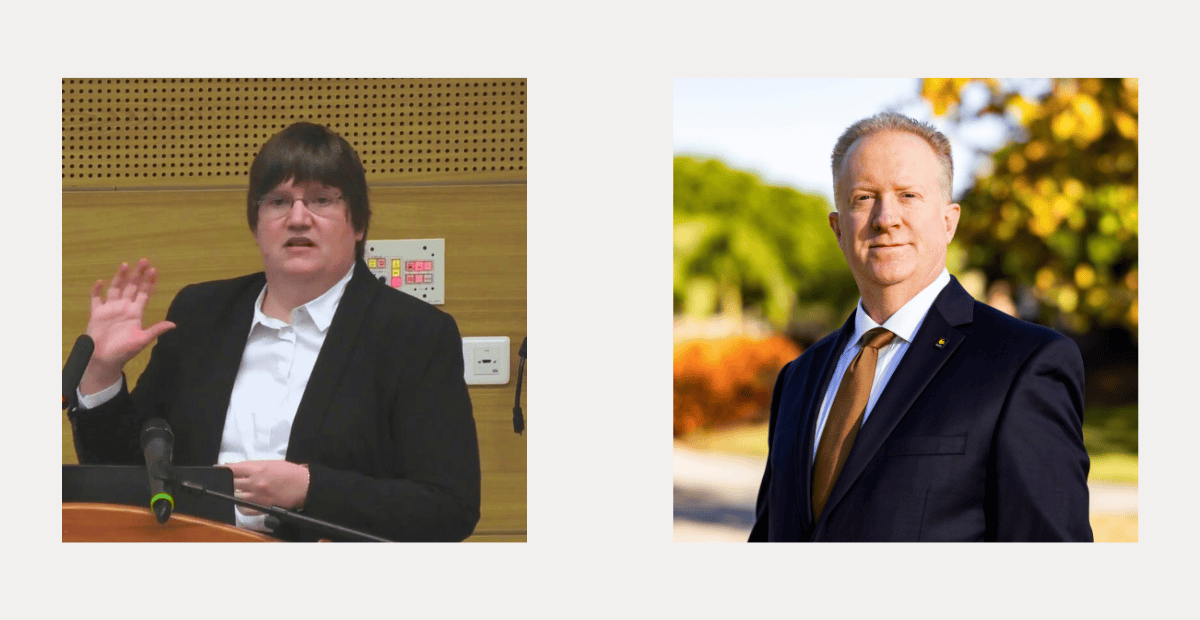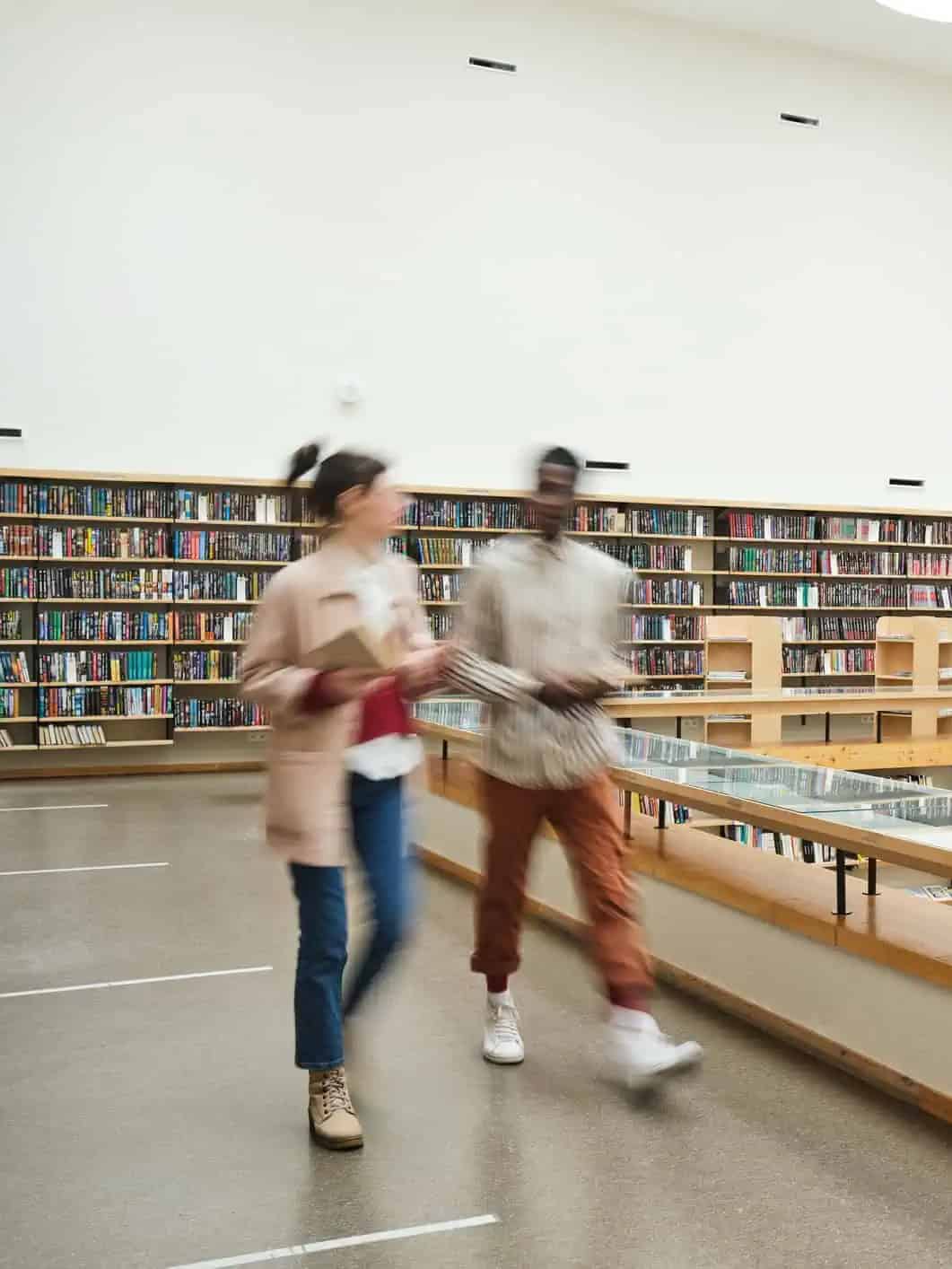Space for Study: The Art and Science of Modern Library Creation
Today’s academic library must take a proactive approach to modern study and research. It is not just a repository of information, not just a place for studying, and not just a building. It is all of these things and more: A vibrant, imaginative space where collaborative learning is fostered.
The seventh De Gruyter webinar in the series Taking Libraries into the Future took place on Thursday September 19, 2024. The speakers were two very distinguished librarians, each of whom has worked incredibly hard to fulfil their vision of how today’s academic library should be laid out and operate: Fiona Greig, Director of Knowledge and Digital Services at the University of Winchester, UK; and Beau Case, Inaugural Dean of Libraries at the University of Central Florida. Like its predecessors, the webinar was moderated by Linda Bennett and Annika Bennett of Gold Leaf.
Click here to catch-up with De Gruyter and Gold Leaf’s quarterly webinar series.
Each speaker began by describing how their libraries had evolved over the past half century. Winchester, which was originally a nineteenth-century seminary, had a traditional library, to which a new floor was added in the mid-1980s. In 2000, a new extension, much longer than the original building, was built to provide more space for stock, some additional study spaces and the University’s first IT suite. There remained a single library service, but it was divided between two separate buildings unconnected by functions or environment.
In 2012, six new group study rooms were “Pritt-sticked” onto the end of the old building. These were narrow but could accommodate small groups and were equipped with multimedia facilities to supply the emerging need of support for student group projects. Finally, in 2021, Fiona and her colleagues succeeded in obtaining funding to begin work on a new university building that incorporated the library and learning spaces and, most importantly, would reflect the understanding that students have different learning styles.

The University of Central Florida was founded in 1967. Today, 93% of its students are from Florida, 29% are Hispanic and 21% are first-generation college students. Several libraries have been developed in different parts of the campus and the library service also provides an “embedded” librarian on the campuses of three regional state colleges (located 19–79 km away). In 1967 the main library was part of the first building to be erected on the campus. In 1984 the non-library units left the 1967 building and spaces for book stacks and studying were expanded to match increasing enrolment and research activities. Radical expansion and renovation – the new project – began in 2018 and is scheduled to continue until 2025.
In Winchester, Fiona and her colleagues obtained funding for the library (now known as the Martial Rose Resource Centre) both internally and externally, the latter from the Office for Students (OfS). They succeeded in securing the full level of grant available from the OfS – some £5.8m – and became one of only two UK higher education institutions to obtain OfS funding for this purpose. If the money already spent by the institution itself is added to this, plus funding committed for the remaining development work, the total outlay will be just short of £8m.
Beau said that in the United States, the typical funding model for higher education capital improvements is via state appropriation (for public universities) and via philanthropic donations (for both public and private universities). UCF is not old enough to attract significant philanthropic funding. The library project (which has seven phases, of which three have been completed) has been funded by an unusual combination of 97% student fee endowment and 3% auxiliary and other revenues. Students have therefore had a great deal of influence on how the project has been developed.
You are currently viewing a placeholder content from YouTube. To access the actual content, click the button below. Please note that doing so will share data with third-party providers.
Both Fiona and Beau described some of fascinating innovations which have already been carried out at their respective universities. At Winchester there is Hypervision 3D image display; a 2-sided immersive project wall; and a large multi-person touch screen, as well as many other state-of-the-art features. Fiona emphasized that the new resources are designed for student-directed use – they are not a teaching resource, though academics are welcome to use them, too.
Beau described a radical rearrangement of space, incorporating 60 group study rooms, open study spaces and a seminar room that can also be used as an executive academic meeting space. The seating spaces encourage diversity: “Our library is a laboratory with longitudinal social science experiments.”
Did you know that Taking Libraries into the Future is also an interview series? Click here for more.
Both speakers said that, although they are extremely proud of what has been achieved so far, the most exciting developments are yet to come. At Winchester these will include a courtyard kitchen, a book garden, and a mock classroom with school resources for trainee teachers. Beau said that Phases four to seven of the UCF project will include a 24-hour study facility, additional quiet study spaces and the relocation of both special collections and library staff.
A lively Q&A session followed the formal presentations. The audience was intrigued by the levels of funding both speakers had managed to obtain. Fiona said that it had been necessary to prepare a strong business case that emphasized the project was for a “resource center” rather than a library. Beau said that the librarians at UCF – and everywhere – “absolutely need to pivot with change and focus on the demographic.”
This brief account merely provides a flavor of what was an extremely rich, multi-layered session. To absorb the whole event, please find the video recording here.
You might also be interested in this blog series
[Title image by Dedraw Studio/iStock/Getty Images]
